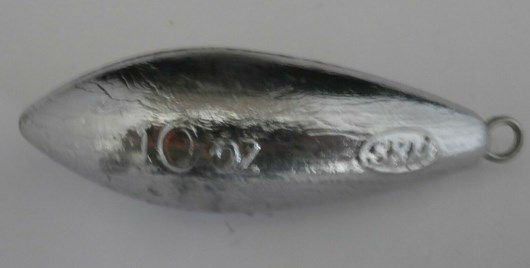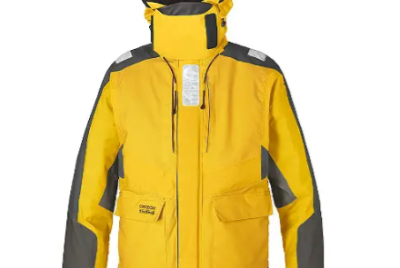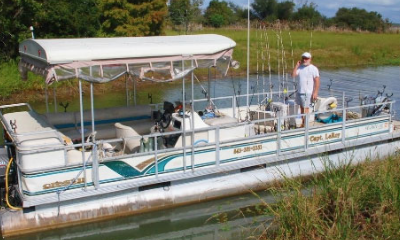Weight of a Fishing Boat
Introduction
Welcome aboard! As an avid fishing enthusiast and boat advisor, let’s delve into the crucial aspect of understanding the weight of a fishing boat. Join me as we navigate through the waters of knowledge and discover why weight matters more than you might think.
Factors Affecting the Weight of a Fishing Boat

When it comes to the weight of a fishing boat, several factors come into play. The hull material plays a significant role, with options ranging from lightweight fiberglass to sturdy aluminum or heavy-duty steel. Additionally, the size and design of the boat, as well as the inclusion of extra equipment such as motors, electronics, and fishing gear, all contribute to its overall weight.
Importance of Weight in Fishing Boats
The weight of a fishing boat holds immense significance, influencing various aspects of its performance and functionality. Firstly, weight directly impacts the boat’s stability and safety on the water. A well-balanced boat is less prone to tipping or capsizing, providing a secure platform for fishing activities. Moreover, weight affects the boat’s maneuverability and fuel efficiency, with heavier boats typically requiring more power to propel through the water.
Choosing the Right Weight for Your Fishing Boat
Selecting the appropriate weight for your fishing boat requires careful consideration of your specific needs and preferences. Assess the typical fishing conditions you’ll encounter, whether it’s navigating choppy waters or gliding through serene lakes. Additionally, factor in the transportation and storage requirements, as heavier boats may necessitate specialized trailers or lifting equipment.
Tips for Managing Weight

To optimize the performance and longevity of your fishing boat, it’s essential to implement effective weight management strategies. Begin by minimizing unnecessary gear and equipment, focusing on essential items that enhance your fishing experience without adding unnecessary bulk. When loading your boat, ensure an even distribution of weight to maintain stability and prevent tilting or listing. Lastly, prioritize regular maintenance to keep your boat in top condition, addressing any issues that could contribute to excessive weight or imbalance.
Effects of Weight Distribution on Fishing Boat Stability
Understanding the distribution of weight within your fishing boat is crucial for maintaining stability and safety on the water. The center of gravity, or the point at which the boat balances, plays a critical role in determining stability. Placing heavy items low and centered within the boat helps to lower the center of gravity, reducing the risk of capsizing or loss of control. Additionally, consider the impact of load placement on stability, ensuring that weight is evenly distributed from bow to stern and side to side. In different water conditions, such as rough seas or strong currents, proper weight distribution becomes even more vital for maintaining stability and maneuverability.
Impact of Weight on Fishing Boat Performance
The weight of a fishing boat directly affects its performance in various ways. Acceleration and speed are influenced by the boat’s weight, with heavier vessels requiring more power to achieve comparable speeds to lighter counterparts. Similarly, fuel efficiency and range are diminished in heavier boats, as more energy is needed to propel them through the water. Maneuverability and handling are also impacted, with heavier boats exhibiting slower response times and reduced agility in tight spaces or challenging conditions.
Common Mistakes in Managing Boat Weight

Despite the importance of proper weight management, many boaters make common mistakes that can compromise safety and performance. One such mistake is overloading the boat with excessive gear or passengers, exceeding the recommended weight capacity and putting undue strain on the vessel. Neglecting regular maintenance tasks, such as cleaning and inspecting for damage, can also lead to increased weight due to accumulated dirt, debris, or water absorption. Ignoring weight distribution guidelines is another pitfall, as unevenly distributed weight can cause instability and affect the boat’s handling and performance.
Innovations in Lightweight Fishing Boat Design
Advancements in materials and construction techniques have led to the development of lightweight fishing boats that offer enhanced performance and efficiency. Modern boats incorporate advanced composite materials such as carbon fiber or Kevlar, which provide strength and durability without adding unnecessary weight. Lightweight components, such as aluminum or composite frames and fittings, further contribute to overall weight reduction without sacrificing structural integrity. The benefits of lightweight design extend beyond performance, with increased fuel efficiency, improved handling, and reduced environmental impact making them an attractive option for environmentally-conscious anglers.
Safety Considerations When Dealing with Boat Weight
Ensuring the safety of passengers and crew should be a top priority when managing boat weight. Familiarize yourself with the maximum weight capacity of your fishing boat, as specified by the manufacturer, and adhere to these limits to prevent overloading. Conduct regular load testing to assess the boat’s stability and performance under different weight conditions, making adjustments as necessary to maintain safe operating parameters. Be aware of the risk of overloading, which can compromise stability and increase the likelihood of accidents or capsizing, particularly in rough seas or adverse weather conditions.
Environmental Impact of Boat Weight

The weight of a fishing boat not only affects its performance and safety but also has environmental implications that should be considered. Heavier boats typically have a larger carbon footprint due to increased fuel consumption and emissions during operation. By contrast, lightweight boats offer improved fuel efficiency and reduced environmental impact, making them a more sustainable choice for eco-conscious anglers. Additionally, practicing sustainable fishing techniques and minimizing your environmental footprint while on the water can help mitigate the overall impact of boating activities on fragile aquatic ecosystems.
Conclusion
In conclusion, understanding the weight of a fishing boat is paramount for ensuring safety, performance, and overall enjoyment on the water. By considering factors such as hull material, equipment, and proper weight distribution, you can make informed decisions when selecting and operating your fishing vessel. Whether you’re navigating calm lakes or braving choppy seas, maintaining a balanced and well-managed boat will ensure smooth sailing and successful fishing expeditions for years to come.
FAQs
1. How does the weight of a fishing boat impact fuel efficiency?
The heavier the boat, the more power required to propel it through the water, leading to increased fuel consumption and emissions.
2. Can adding extra weight improve stability in rough waters?
While some additional weight may enhance stability in certain conditions, it’s essential to avoid overloading the boat, as this can compromise safety and performance.
3. What are some common misconceptions about boat weight?
One common misconception is that heavier boats are always more stable and durable, whereas excessive weight can actually decrease stability and maneuverability, increasing the risk of accidents or capsizing.
4. How can I determine the maximum weight capacity of my fishing boat?
Refer to your boat’s manufacturer specifications or consult with a marine expert to determine the maximum weight capacity and ensure safe operation under various conditions.
5. Are there any regulations regarding boat weight limits for fishing?
Regulations regarding boat weight limits may vary by region and water body, so it’s essential to familiarize yourself with local laws and regulations governing boat operation, safety, and environmental protection.




